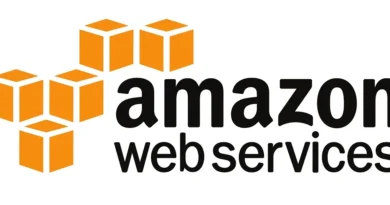How Secure And Protected Are Cloud Application?
Cloud Application: People are more likely than ever before to work from home because of advancements in technology. Because we need to be able to access our data from anywhere with an internet connection, technologies like email and cloud computing have become increasingly crucial to us. To get money, hackers are turning to cloud-based services and executing increasingly sophisticated attacks.
Then, how secure are your cloud-based apps? Let’s take a closer look at this. According to Netskope’s threat study, many people are unaware of the dangers of ransomware delivered via cloud-based apps. Last year, cloud apps were the source of 66% of all ransomware downloads, up from 46% at the beginning of the year. According to a similar survey, over half of all cloud-based applications were at risk of credential theft.
Many Data Breaches Occur as a Result of Cloud-Based Applications
As cloud services get more popular, so does the number of criminals trying to hack into customers’ cloud apps. These attacks frequently employ cloud services that distribute malware. In addition, cloud app insiders have boosted information leaks in recent decades. Security breaches on more than half of all cloud services have resulted in a significant rise in corporate and individual data breaches. This means that one out of every seven people working in the cloud is under attack.
Also Read: How Cloud Ensures Enhanced Data Protection?
Tips For Staying Safe
Create security-related procedures, such as virus detection, key distribution, or information theft prevention using Cloud Access Security Broker (CASB) technology. CASBs not only provide complete visibility into how cloud applications are being used, but they also do security assessments on each cloud service being used, allowing them to spot any possible issues before they arise.
Access control, encryption, information rights management, and tokenization are just a few of the measures used by CASBs to keep your data safe and secure. Because of its high degree of security, many corporations and organisations choose to adopt CASBs.
A virus scanner may be installed to protect your cloud against infection. Though cloud antiviral software may be unfamiliar to many, it might be useful. Cloud antiviruses, unlike traditional ones, employ a cloud server to handle most of their activities, lessening the pressure on your local computer.
Is It Really Necessary?
As cloud services have become more popular, ransomware and other pests have risen in number. Analysis by Netskope uncovered and analysed important hacker cloud operations trends through 2020. User accounts are being infiltrated with ransomware packages in a certain pattern. Google Drive accounted for the great majority of ransomware uploads in 2021, accounting for almost two-thirds of the total. As the use of cloud-based apps increases, so does the potential of data leakage from unprotected Office documents.
To fight these new threats, businesses are turning to established security measures, and consumers should do the same. Customers’ freedom to move freely inside the cloud is ensured by the widespread use of cloud security solutions such as CSPM, IAM, and SSE-driven frameworks.



